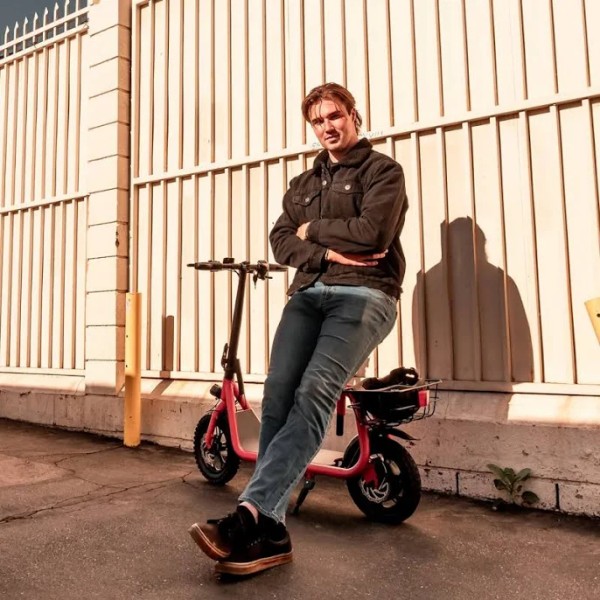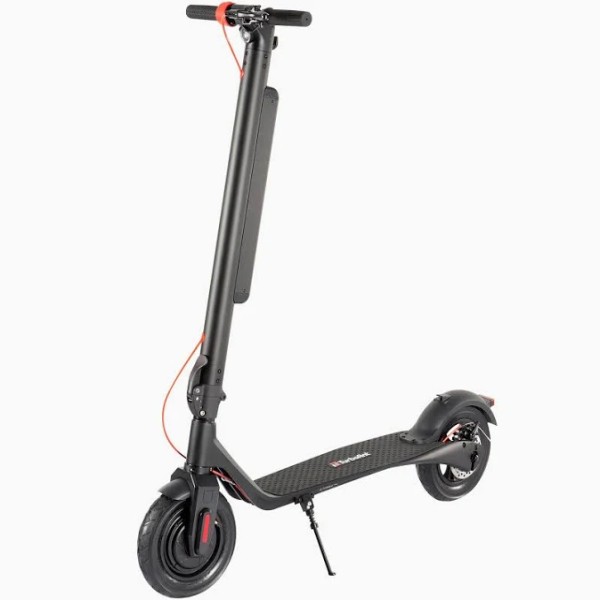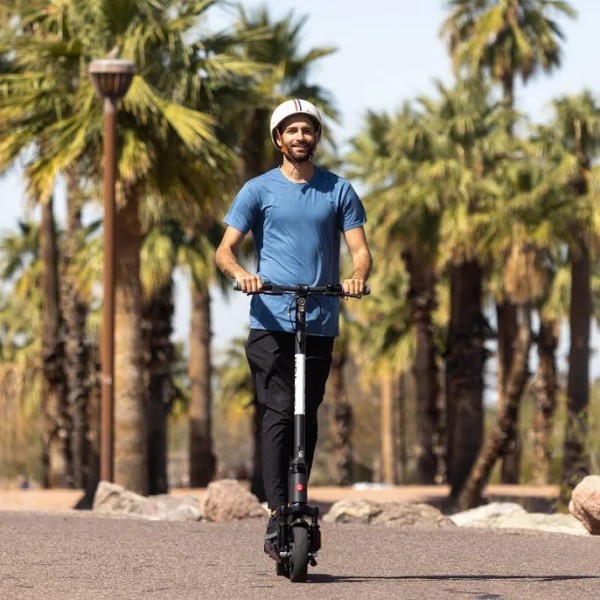The rise of electric scooters as a popular mode of transportation represents a significant shift in how people navigate urban environments. As cities strive for greener options and solutions to traffic congestion, electric scooters have quickly gained traction. They offer convenience, speed, and an eco-friendly alternative to conventional vehicles. However, an essential question arises for many potential riders: do you need a license to drive an electric scooter? This query encapsulates not only compliance with the law but also the underlying concerns regarding safety and responsibility on the roads.
Understanding the regulations that govern electric scooter use can be complex, as they vary significantly across different regions. In some places, license requirements may depend on factors such as the scooter’s speed, power, or whether it classifies as a motorized vehicle. Additionally, comprehension of local laws ensures that users can enjoy the benefits of electric scooters without risking fines or accidents. In this article, we will explore licensing requirements worldwide, delve into the distinctions between electric scooters and other vehicles, and discuss responsibilities that come with riding them.

The Growing Popularity of Electric Scooters
The increasing popularity of electric scooters comes as no surprise, especially among urban dwellers. Young professionals commuting to work, students navigating campus life, and tourists exploring new cities have embraced scooters for their convenience and versatility. Several factors contribute to this trend:
- Ease of Use: Most electric scooters are user-friendly and require minimal setup. With just a few pushes to gain speed, riders can navigate through urban traffic easily.
- Eco-Friendly Transport: Electric scooters produce fewer emissions compared to cars or mopeds, making them an environmentally friendly choice to reduce carbon footprints.
- Cost-Effective Alternative: Usage reduces reliance on cars, and many cities provide shared electric scooter services, which allows users to pay only for the time they ride. This affordability makes scooters an attractive alternative.
- Convenience: Scooters can easily bypass traffic congestion and allow riders to park closer to their destinations compared to traditional vehicles.
Despite their advantages, the legal framework surrounding their operation requires careful consideration. As electric scooters become embedded in urban transportation systems, answers to questions like “do you need a license to drive an electric scooter?” will be imperative for responsible riding.
Licensing Regulations Across Different Regions
When it comes to electric scooters, the question of licensing is not universally applicable. The requirements vary significantly from one region to another. Here’s a closer look at some regions and their regulations:
United States: In many states, the answer to whether you need a license to drive an electric scooter depends on its classification. Some states consider scooters that reach certain speed limits (usually above 20 mph) as motor vehicles requiring a standard driver’s license. However, many states allow electric scooters with a lower maximum speed (15 mph or less) to be ridden without a license. Always check local laws before purchasing or riding.

United Kingdom: In the UK, the current legislation requires users to have a valid driving license to operate rental electric scooters under the government-sponsored trials. However, privately owned scooters are restricted to being used on private land, making local regulations essential in determining the legal status.
Europe: Countries within the European Union have varied policies. For example, in Germany, electric scooters are considered vehicles, and riders must possess a driver’s license, insurance, and display license plates. In other countries, like France, electric scooters are categorized similarly to bicycles, with lower regulatory barriers, allowing riders without a license.
Australia: Licensing requirements for electric scooters vary significantly from state to state. In some places, like New South Wales, electric scooters are allowed on public roads without needing a license, while in Queensland, riders must adhere to specific conditions that may include holding a license.
These regulations emphasize the importance of local laws, making it crucial for riders to educate themselves before hitting the road.
Distinguishing Between Electric Scooters and Other Vehicles
Understanding classifications is vital in determining if you need a license to drive an electric scooter. Electric scooters, bicycles, e-bikes, and mopeds all have distinct definitions and regulations:
- Electric Scooters: Generally classified as “personal transportation devices,” laws often distinguish scooters based on maximum speed and power output. Depending on these criteria, licensing might become necessary.
- Bicycles: Most regulations categorize bicycles separately from motorized vehicles. Thus, riders of traditional bicycles do not need a license, even if they are using pedal-assist bicycles or e-bikes.
- E-bikes: Some jurisdictions might require e-bikes to adhere to specific regulations if they can attain speeds that meet or exceed those of electric scooters.
- Mopeds and Motorcycles: These vehicles require a valid license, registration, and insurance. Typically, these classifications are based on engine size and speed capabilities.
Clearly understanding these classifications allows riders to locate regulations specific to their mode of transport.
Understanding the Responsibilities of Riding an Electric Scooter
Regardless of whether a license is required, all electric scooter riders should be aware of their responsibilities. Riding an electric scooter comes with expectations for safety, behavior, and compliance with local laws:
- Obey Traffic Rules: Treat electric scooters like bicycles—riders should adhere to traffic signals, follow speed limits, and yield to pedestrians to ensure safety for everyone.
- Use Proper Safety Gear: Wearing a helmet and reflective gear is advisable, even if not mandated. Prioritizing personal safety reduces the risk of severe injury in the case of an accident.
- Ride in Designated Areas: When possible, stick to bike lanes or designated paths to minimize risks associated with riding in heavy traffic. Riding on sidewalks may be prohibited in many areas.
- Understand Local Regulations: Adhering to laws that govern speed limits, parking requirements, and restrictions will keep you compliant and reduce the risk of fines.
- Keep Your Scooter Maintained: Regular maintenance ensures its functionality and rider safety. Basic checks on brakes, lights, and tires are fundamental for a secure experience.
By embracing these responsibilities, riders contribute to creating a safer atmosphere on the roads and ensures an enjoyable experience for all parties involved.
The Importance of Understanding Local Regulations
Beyond merely asking, “do you need a license to drive an electric scooter?” individuals should invest time in understanding the legal landscape surrounding these devices. Cities and municipalities can have unique regulations influencing scooter use, such as specific areas designated for riding, time restrictions, and fines for negligence.
- Consult Local Authorities: Cities typically have local transportation authorities or departments that provide updated information on laws pertaining to electric scooter use.
- Participate in Community Forums: Engaging with local community boards or forums can yield insights into practical experiences from other riders, helping you stay informed about best practices.
- Attend Safety Workshops: Many cities host safety sessions or workshops that educate riders on legal requirements and safe riding practices. Participating in these can enhance knowledge and riding skills.
Staying informed ensures riders remain compliant and enjoy the benefits of a fast and efficient mode of transport.
Future Trends: Evolving Regulations for Electric Scooters
The rapid adoption of electric scooters has led cities and governments to revisit their regulations, paving the way for future legislation that fits a changing landscape. The following trends may emerge in the coming years:
- Increased Licensing Requirements: As electric scooter accidents increase, cities may respond by implementing stricter licensing and insurance requirements, similar to those associated with cars and motorcycles.
- Standardization of Laws: Efforts toward standardizing laws across jurisdictions may arise to eliminate confusion. This could lead to a more cohesive framework regarding electric scooter operation.
- Enhanced Infrastructure: As the prevalence of electric scooters continues to grow, the development of dedicated lanes and parking spaces will become increasingly important to ensure rider safety.
- Emphasis on Rider Education: Cities may place greater emphasis on educating riders through mandatory training programs focusing on safety protocols, legal responsibilities, and maintenance practices.
The future of electric scooters is likely to be shaped by both users and regulatory bodies. Understanding these possible changes will empower riders to adapt and thrive in this dynamic environment.

Conclusion
In summary, the question of “do you need a license to drive an electric scooter?” reveals a complex landscape of regulations influenced by various local, state, and national laws. As electric scooters become integral to urban transportation, grasping these laws is crucial for responsible riding.
Understanding licensing requirements, safety responsibilities, and infrastructure developments is vital for maximizing the potential and safety of electric scooters. As a user of this innovative mode of transport, becoming informed not only protects you from legal repercussions but also contributes to a safer riding environment for all.
By maintaining awareness of local laws, practicing safe riding behaviors, and staying engaged with emerging regulations, individuals can enjoy the thrilling benefits of electric scooters while prioritizing safety and responsibility. So grab your helmet, embrace the ride, and participate in reshaping the future of urban mobility!